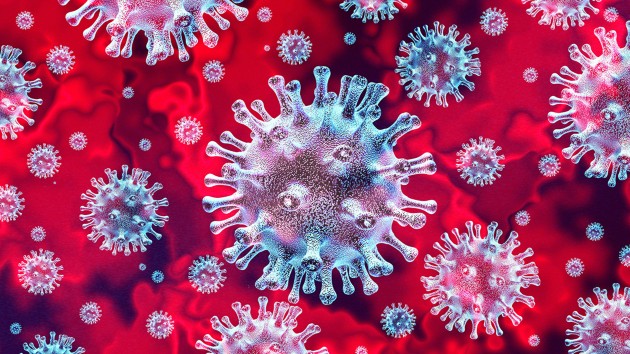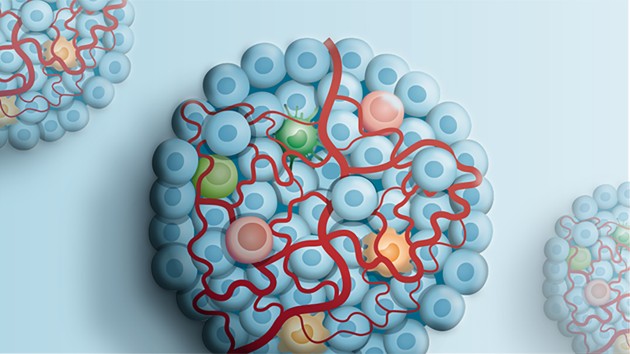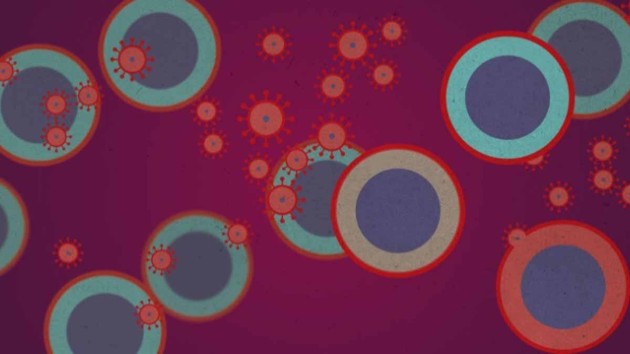Focus |
Collections
Filters
-
Collection Type
-
-
Special |
 gnomAD
gnomAD
The human genome comprises both our protein-coding genes and the regulatory information that controls when, and to what extent, those genes are expressed.
Image: SciStories -
Special |
 TRACERx
TRACERx
Cancers evolve at a dynamic pace to adapt to immune pressure, colonize new niches, and evade therapy. Tracking these changes can help us improve diagnosis, better tailor therapies, and forestall recurrence, but it requires intensive monitoring beyond current clinical practice.
Image: Jeroen Claus / Phospho Biomedical Animation -
Collection |
 Coronavirus
Coronavirus
To support urgent research to combat the ongoing outbreak of COVID-19, caused by the novel coronavirus SARS-CoV-2, the editorial teams at Nature Research have curated a collection of relevant articles.
-
Focus |
 Focus on Big Data in Health
Focus on Big Data in Health
Big data is changing the face of medical research at a staggering pace. In this Focus issue, Nature Medicine explores Big Data: what are the next steps toward a substantial positive impact on human health?
-
Collection |
 Cartilage repair and regeneration
Cartilage repair and regeneration
This Collection of articles from several Nature journals covers the latest advances in our understanding of cartilage as a tissue, as well as insights into cartilage repair and potential regeneration strategies.
Image: Springer Nature Limited/YAY Media AS/Alamy -
Collection |
 Rare Cancers Collection
Rare Cancers Collection
This collection from the cancer editorial community at Nature Research journals focuses on highlighting work on rare cancers, from preclinical basic research to translational and clinical research.
Image: Simon Bradbrook/Springer Nature Limited -
Focus |
 Focus on cancer therapy
Focus on cancer therapy
As our understanding of the mechanisms of cancer increases, so does our understanding of cancer therapies and responses to them. As part of our celebration for the 25th anniversary of Nature Medicine, we bring you a special focus on the most up-to-date approaches transforming the landscape of cancer therapy. Also check out the most recent clinical trials published in Nature Medicine and in Nature, as well as a selection of research in the emerging field of clinical genomics.
-
Collection |
 Gut Microbiota
Gut Microbiota
This collection combines published Research articles and Reviews from several Nature journals highlighting recent advances in our understanding of the role of the gut microbiota in health and disease, and the tools for studying these complex communities.
Image: Brain light / Alamy Stock Photo -
Focus |
 Digital Medicine
Digital Medicine
Explore the challenges and opportunities in the field of digital medicine in this focus, including more practical implementation in hospitals and ethical concerns
-
Milestone |
 HIV research
HIV research
Human immunodeficiency virus (HIV) – the etiologic agent of AIDS – is one of the most intensively studied disease organism in history. Since its first identification in the early 1980s, HIV has transformed into a pandemic, globally infecting more 36 million people and annually contributing to the deaths of hundreds of thousands of patients – particularly in low income countries.
Image: Chris Ryan -
Collection |
 Bioelectronic interfaces
Bioelectronic interfaces
In health and biomedical applications, electronic technologies allow monitoring, sensing and extracting physiological data as well as correcting or supporting tissue function through electrical stimuli. This collection highlights the recent developments in materials science, electronics and biology of bioelectronic devices.
Image: Andriy Popov / Alamy Stock Photo

 COVID-19 and digital privacy
COVID-19 and digital privacy